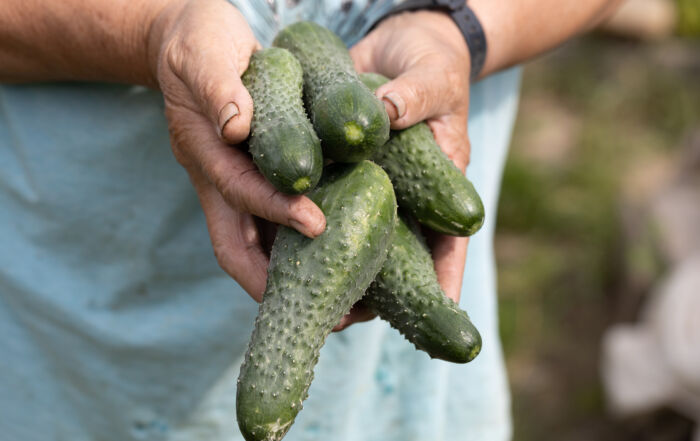Is a Food Safety Culture on your New Year’s Resolutions List?
We hope you all had a wonderful Holiday season and are getting ready for a great new year!
Right before the holiday, I was thinking back to a seminar I sat in on several years ago with an individual, who at the time, was the CEO of Pal’s Sudden Service. If you are not familiar with Pal’s, it’s a regional quick service chain that won the 2001 Malcolm Baldrige National Quality Award in the small business category. I believe this is one of the only restaurant companies to have won the award. The award program is run through the U.S. Department of Commerce National Institute of Standards and Technology and awarded by the President. The program itself was designed to improve and then showcase and drive performance excellence in the U.S. and global economy.
A culture that values doing food safety the “right” way will allow employees to help other employees achieve their best and creates opportunities for open dialogue …
In the session, the CEO was talking about the training that each of the employees receives before ever being in front of a customer. Granted this was a few years ago, but if my memory serves me correctly, each employee received a minimum of 124 hours of training before ever speaking to a guest. As a former restaurant manager, I was astonished, if our employees received 1/15 of that amount of training before speaking to their first guest, I would have been surprised. The CEO went on to say that they preferred that they hired employees who had no experience in any quick service operation, thus eliminating the need to re-train the employees from bad behavior or poor habits that they may have already picked up in the foodservice industry.
After that session, I started to think about training and hiring in a new way. As a young manager, I had never really thought about the need to break the habits and bad behaviors that employees come to us with – even habits that they learned long before they ever started working a foodservice operation. We discussed habits a bit in a previous blog a year or two ago, where I introduced one of my most favorite books, The Power of Habit: Why We Do What We Do in Life and Business by Charles Duhigg, but it is certainly a topic that bears repeating.
When an employee comes to us, regardless of where they learned it, they are bound to bring bad habits into our operation. For example, not washing hands when they should, not washing hands following the proper procedure, or not taking the end-point cooking temperature of a product. All of these issues could lead to a foodborne illness in our business, but employees may not make that connection. For these reasons, it is important to really try to understand why employees do what they do and help them to see why following proper practices is important. In some cases, they may have never washed their hands correctly, and to their knowledge, they have never made someone ill. Food safety training can help make this connection for them, but it won’t solve all of your problems.
This is why we often talk about the importance of a food safety culture within your organization. As we get ready to face a new year, hopefully you’ve included in your business goals to help support or enhance your food safety culture. A culture that values doing food safety the “right” way will allow employees to help other employees achieve their best and creates opportunities for open dialogue about why things are done the way they are. This helps employees who may question why things are done seek clarification and, hopefully, get on board with your culture that supports that nothing is too important that it cannot be done with food safety in mind.
Earlier this month, we posted our most recent SafeBites Webinar, “A Foodservice Operators’ Guide to the Food Code”, be sure to check it out! As a reminder, if you have any topics you’d like to hear about in 2023 or any other food safety questions, please reach out. From all of us at FoodHandler, we wish you a happy and healthy new year! Risk Nothing.
READ MORE POSTS
Ongoing Outbreaks: What We Can Learn from the Most Recent Carrot and Cucumber Outbreaks
Last month in our blog, we highlighted the recent E. Coli outbreak stemming from onions served [...]
The Hidden Dangers: Allergens in Your Foodservice Operation
It has been a while since we have addressed or discussed allergens in the blogs. In [...]
What Have We Already Learned from the Most Recent E. Coli Outbreak?
In late-September and peaking in very early-October, reports of increased Escherichia coli (E. coli) 0157:H7 cases [...]
Ensuring Food Safety in Emergency Foodservice Operations
As we were reminded earlier this month, emergencies can strike unexpectedly, whether due to natural disasters, [...]










